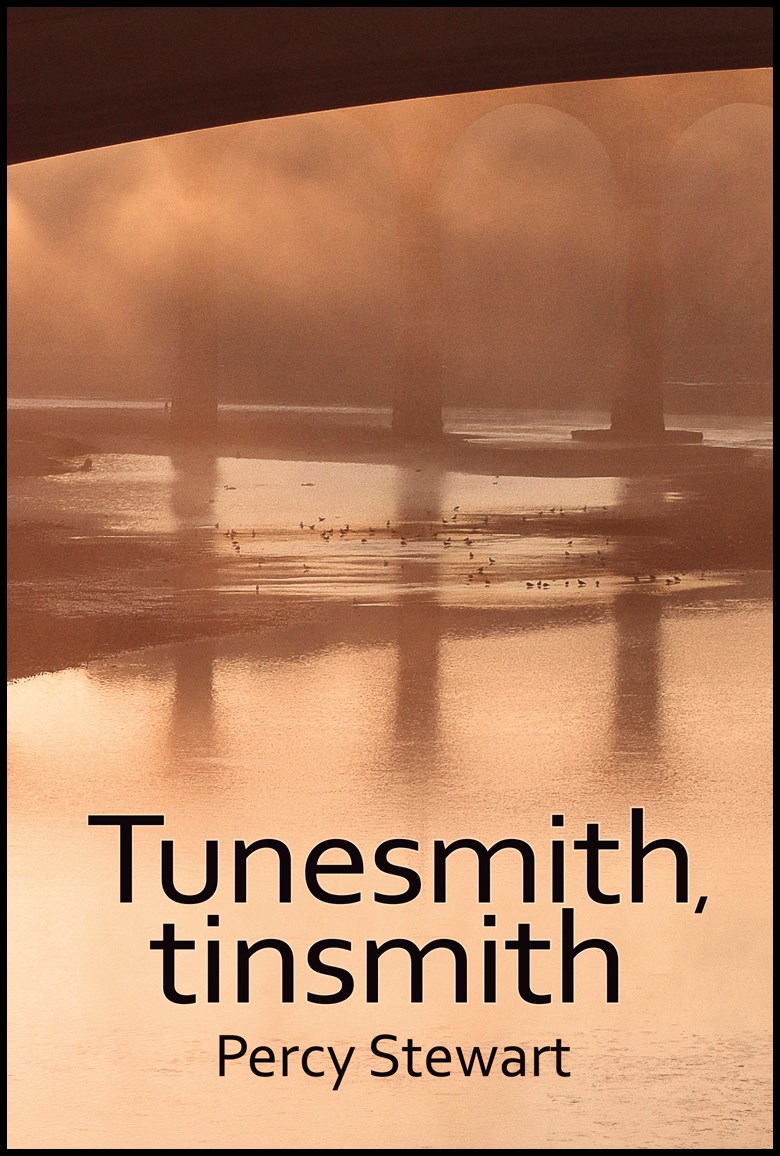Famous violinist?
Jacques is an entirely fictional character, a figment of Percy Stewart's imagination. Jacques' dreamy idealism gives the Tunesmith trilogy a whimsical array of colours, but most of the details come from real-life.
'He is very definitely NOT me, even though he shares some of my stupidity and many of my enthusiasms.
'I never had the skill to become a famous violinist, but yes, I do know exactly what it is like to face a crowd of cheering teenagers...a case of mistaken identity, because the person in question had already been dead for a very long time.
'As the saying goes, it's easier to convince a thousand people than one person, and once a rumour starts to circulate, adulation can spread like wildfire.'

Significant reference
On a recent return to the home of his youth, Percy Stewart was able to verify one significant reference in Tunesmith.
'In Lourdes in April this year, a local friend mentioned a village restaurant which I had known well in the seventies. He knew it even better, because his uncle had set it up. The food was wonderful hearty peasant cooking, with steaks flame-grilled on an oak-wood fire outside the door. The place was packed every evening, and soon its reputation had spread across the region.
'This much I already knew long ago. The big surprise came when I asked my friend if the place was still going.
'He mentioned some impressive names: James Mason, Carlos Santana and other people I admired. There followed a heart-warming story about being in the limousine with Santana, with his music playing loud in the car on the way to the airport.'
Bombshell
'Then came the bombshell...Joseph Rheinhardt, in 1976.
'Joseph was the brother of Django, the legend admired by Johnny Depp and anyone else who really understands what is what and who is who in great guitar playing.
'Joseph's virtuosity was immediately obvious to my nineteen year-old ears, but I was also aware that the music had a different character to that which we know from when Django was alive.'
Raw and real
'I wonder how it would have sounded if Django had been in the room. Like other great musicians who are now household names, he must have played thousands of nights in back-street cafés, with one or two punters and a bottle of red wine.
'Joseph and the others were playing purely for their own pleasure, which is what made that half-hour one of the most privileged moments of my life. They didn't put on a show, they simply ignored me and played, so the music was raw and real, taking risks and having fun.'
Magical moment
'Preserving that magical moment on the page has given it a new life, so that others can share a sense of the experience.
'I recently went in search of the café, in a narrow street which still has some nineteenth-century buildings. The café has disappeared, like the men who played there one evening in the seventies. When their glasses were empty they went off to eat their dinner, part of a Gypsy pilgrimage which is now only a legend.'
Sixties formica
'I still have a clear enough visual and musical memory of that meeting to help a producer to recreate it on screen. For a start, the café was surprisingly bare and sixties-formica, in the basement of a building which had been there for around a hundred years, hidden away behind one of the busiest streets in town.
'There are still people in Lourdes who know exactly what is needed for authentic production-design, and many of the locations have hardly changed in the last half-century. I can even remember some of the cars which used to park outside the hotel where I lived, and the sales-pitches of street photographers with their battered Polaroid cameras.
'The film version of Tunesmith will bring it all back, just as if we were sitting there, and in France there are musicians who have continued in the path mapped out by Django and Joseph. The first screening will certainly be a good reason to open a bottle of red wine!'
Purchase Percy Stewart's novels Pilgrim and Tunesmith, tinsmith
Pre-order Feeding the vultures